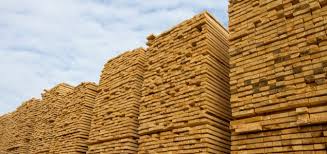|
Growth in the production of softwood sawn
timber, pulp and paperboard accelerated substantially in the third quarter ¡ª
reasonable energy costs play a key role in competitiveness

The rate of growth in the production of softwood sawn timber, pulp and
paperboard accelerated in July¨CSeptember compared to the first half of the
year. The first six months of the year were also good for pulp and
paperboard, largely due to new investments. Paper production, however,
continued to decline. The profitability of sawn timber production was
reduced by lower export prices and higher raw material costs. The government
must ensure that energy and logistics costs are competitive in Finland and
that forest policy is used purposefully to increase the supply of wood in
response to the strong growth in demand.
The production of softwood sawn timber grew by 9.2% in the third quarter and
amounted to 2.6 million cubic metres. Pulp production also increased
substantially and was up 11.1% compared to the corresponding period last
year. Forest industry corporations produced a total of 1.9 million tonnes of
pulp in July¨CSeptember.
Paperboard production grew by as much as 17.5% in the third quarter, to
840,000 tonnes, boosted particularly by new investments in the forest
industry. At the same time, paper production declined by 5% and amounted to
1.7 million tonnes.
Paper production has fallen by 6.1% since the start of the year. Forest
industry corporations¡¯ production was 5.1 million tonnes in
January¨CSeptember, but production growth continued in other product
categories.
Since the start of the year, forest industry corporations produced 6.5% more
softwood sawn timber than in the corresponding period in 2015, for a total
production volume of 8.4 million cubic metres. Pulp production increased at
almost the same rate, with a year-on-year increase of 6.4% in
January¨CSeptember and a total production volume of 5.6 million tonnes.
Paperboard production grew by 10% to 2.5 million tonnes during the first
three quarters of the year.
Reasonable energy costs prevent carbon leakage
¡°The Government Programme states that industrial costs will not be
increased. This is an important policy that must be maintained. Reasonable
energy costs, as well as reasonable costs related to raw material use and
logistics, are essential for the Finnish forest industry,¡± says Timo
Jaatinen, Director General of the Finnish Forest Industries Federation.
Fair treatment compared to the countries that compete with the Finnish
forest industry helps prevent carbon leakage, which refers to the relocation
of production operations. It also makes it possible to maintain the targets
set for renewable energy. The forest industry produces two thirds of
Finland¡¯s renewable energy.
In September, the government submitted a proposal to the parliament on
implementing compensation for the costs of emissions trading at a rate of
50% of the maximum allowed by the EU, which would reduce the competitive
disadvantage of Finnish industry. Germany, for example, has implemented
compensation for the costs of emissions trading at the full rate allowed by
the EU. It is important to ensure that the model drafted by the government
will not be changed.
¡°Consistent decisions and policies are essential from the perspective of
businesses. The changes proposed in the public discussion on the issue would
be contrary to this principle,¡± Jaatinen explains. |
